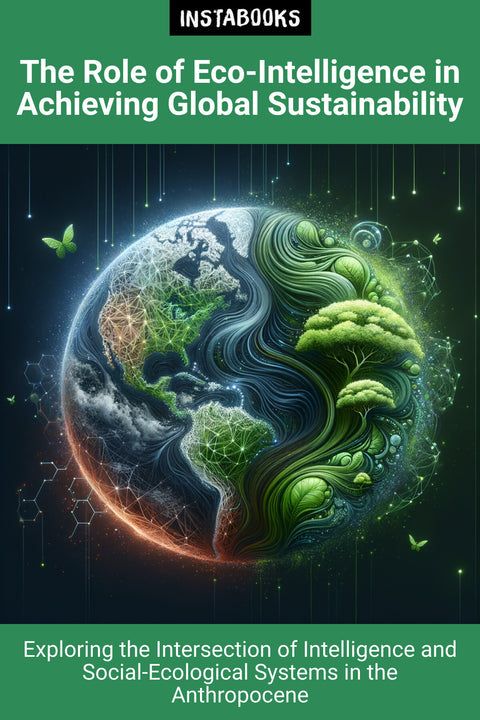
The Role of Eco-Intelligence in Achieving Global Sustainability
Exploring the Intersection of Intelligence and Social-Ecological Systems in the Anthropocene
Included:
✓ 200+ Page AI-Generated Book
✓ ePub eBook File — read on Kindle & Apple Books
✓ PDF Print File (Easy Printing)
✓ Word DOCX File (Easy Editing)
✓ Hi-Res Print-Ready Book Cover (No Logo Watermark)
✓ Full Commercial Use Rights — keep 100% of royalties
✓ Publish under your own Author Name
✓ Sell on Amazon KDP, IngramSpark, Lulu, Blurb & Gumroad to millions of readers worldwide
In an era where the balance of our planet hangs by a thread, The Role of Eco-Intelligence in Achieving Global Sustainability delves into the multifaceted concept of intelligence and its critical role in fostering social-ecological resilience. This book illuminates the pathways through which diverse forms of intelligence, particularly Social-Ecological Systems intelligence, can drive sustainable solutions to the pressing challenges of climate change and the Anthropocene epoch. Ideal for students, researchers, NGOs, and educators, it bridges theoretical insights with practical applications, offering a comprehensive guide to understanding and leveraging eco-intelligence for a sustainable future.
Table of Contents
1. Introduction to Eco-Intelligence- Defining Eco-Intelligence
- Historical Context and Evolution
- Importance in the Modern World
2. Understanding Different Types of Intelligence
- Emotional Intelligence
- Artificial Intelligence
- Ecological Intelligence
3. The Anthropocene Epoch
- Defining the Anthropocene
- Human Impact on the Earth
- The Need for a New Approach
4. Social-Ecological Systems (SES) Intelligence
- Defining SES Intelligence
- Components of SES Intelligence
- Case Studies and Examples
5. Climate Change and Eco-Intelligence
- The Science of Climate Change
- How Eco-Intelligence Can Mitigate Climate Change
- Real-World Applications
6. Interdisciplinary Approaches
- Combining Different Forms of Intelligence
- Integrating Scientific and Traditional Knowledge
- Benefits and Challenges
7. Educational Implications
- Teaching Eco-Intelligence
- Curriculum Development
- Case Studies in Education
8. The Role of NGOs and Policy Makers
- Advocacy and Implementation
- Policy Development
- Successful Initiatives
9. Community Engagement and Participation
- Building Community Eco-Intelligence
- Participatory Approaches
- Success Stories
10. Technological Innovations and Eco-Intelligence
- Role of Technology in Eco-Intelligence
- Innovative Solutions
- Future Prospects
11. Barriers and Challenges
- Identifying Key Challenges
- Overcoming Obstacles
- Learning from Failures
12. The Future of Eco-Intelligence
- Emerging Trends
- Long-Term Vision
- Call to Action
